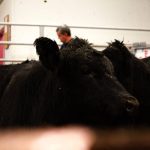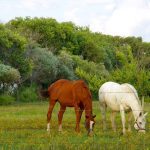Research shows the five-year survival rate for small and medium enterprises jumps from fewer than half to more than 70 per cent if mentors are involved.
That’s according to Virginia McGowan, a certified mentor who witnessed this powerful transformation while running a mentorship program for a group of 70 female entrepreneurs in Charlottetown, P.E.I. The women benefited from having a sounding board and getting feedback, says McGowan.
Read Also

When hackers hit the barn
As Canadian farmers embrace automation, cybersecurity is the new front line. Here’s how to protect your on-farm data from digital threats.
McGowan is quick to point out this wasn’t the old-fashioned notion of mentoring with the “sage on the stage” doling out advice. This was a new wave of mentoring called developmental mentoring.
“It’s holistic and looks at the whole person,” says McGowan.
But the mentor-mentee relationship doesn’t only benefit the mentee (i.e. the one being mentored). McGowan says mentors told her it also made them think more about the way they did things, making them better business managers as a result.
This wasn’t the first time McGowan experienced the positive impacts of mentoring. “I’ve been mentored both personally and professionally my whole life,” she says. During the past few years, she also completed mentoring certifications and mentored through both national and international business organizations. And earlier this year, she published a book on the subject called Harness the Power of Mentoring: How to Find and Work with the Right Mentor — A Guide for the Solopreneur.
Finding a mentor
Mentorship programs can take many shapes and forms, says McGowan. They can be formal or informal and can be one-on-one, group or at a distance.
When looking for a mentor, McGowan advises looking for someone who isn’t too busy, someone who is a good listener, is altruistic, and has been successful in business. Look around locally. “Who do you know, respect and admire who has relevant experience? Check their LinkedIn profiles, Twitter feeds, Facebook pages and other social media. Comment positively on their posts, retweet one of their tweets, invite them to join your LinkedIn network (with a personal note).”
Then reach out gently and build a relationship before you ask them to be a mentor, says McGowan. “You don’t want to come across like a stalker, or be too pushy.”
One of the pitfalls to watch for when seeking a mentor informally is the tendency to look for someone who is like us. That’s a natural tendency but sometimes we learn more from someone who has a different perspective and approach, says McGowan.
New AWN program
Access to mentorship programs can be limited for farmers and other small business owners in rural areas. Last year the Ag Women’s Network (AWN) created a mentorship program as a pilot project.
“Connecting women in agriculture for personal and professional development is a cornerstone of the Ag Women’s Network,” says Joan Craig, who took a lead role in developing the mentorship program.
“AWN, an online community of farmers and professionals, provides a unique opportunity for women from any sector of ag, at any career stage, to connect in a mentorship program,” she says.
Craig, who has personally experienced the benefits of both formal and informal mentorships in the past, is a big believer in the value of mentoring. “Mentorship is a direct action to build skills,” she says. “There is so much potential for the agriculture industry to benefit from mentorship programs… we’ve been doing informal mentorships for generations.”
Building on existing successful mentorship models, and with input from the membership through surveys and discussion groups, the eight-month pilot mentorship program was launched with 10 mentees matched to 10 mentors.
With support from FCC in 2019, the mentorship program is running again with another group of 10 mentees and 10 mentors.
Based on feedback from the pilot project, more opportunities for networking have been added to this year’s program, says Craig, who is hopeful AWN will be able to continue to offer the program in the future and expand it beyond Ontario.
In the AWN program, mentees work with their mentors to complete a Road Map Goal Setting Document. With input from their mentors, mentees are encouraged to establish three to five goals. During the duration of the mentorship, mentors provide valuable insight, guidance, and encouragement as the mentees work towards completing their goals.
Amanda Peer of Perth County, Ont., works in grain marketing for Thompsons Limited, and served as a mentor in the AWN pilot project. After a successful experience as a mentor, she is serving as a team lead for this year’s mentorship program.
“There are so many opportunities within AWN for women in agriculture and the mentorship program is one of those great opportunities,” says Peer. “Stepping out of your comfort zone can be scary and taking the first step sometimes needs some encouragement… however, you will never grow unless you peruse new avenues.”
Although Stacey Jibb had participated in workplace mentorship programs before, she jumped at the chance to be a mentee in AWN’s pilot program.
Working in economic development for Durham Region, north of Toronto, Jibb was excited that the AWN program would allow her to connect with someone on both personal and professional levels. Another benefit was that the mentor was able to give an unbiased perspective, she adds.
Jibb and her mentor connected through various means including email, text, weekly phone calls and monthly face-to-face meetings. Her mentor knew what questions to ask and kept her on track, she says.
“It was an excellent experience,” says Jibb. “It’s really valuable if you make the time for it.”
Mentoring tips from Virginia McGowan
Do you have what it takes to be mentored?
- Are you open and flexible, ready to change what you do and how you approach issues?
- Are you resilient, ready to take reasonable leaps and learn from your mistakes?
- Are you ready to be challenged?
- Are you eager and committed to learning?
What to look for in a mentor
Someone who:
- Is a good listener.
- Who will challenge when appropriate.
- Makes suggestions but doesn’t tell you what to do.
- Allows the mentee to do most of the talking.
- Asks pertinent questions.
- Encourages the mentee to consider different options.
- Is able to give and receive feedback.
- Is a successful entrepreneur.
- Can help the mentee identify risks and plan accordingly.
Building the mentor-mentee relationship
- Must be based on trust and respect.
- The mentee must do their homework, show up on time.
- Mentee leads the process with what they want to get out of it.
- Meetings should be held in a safe and neutral space.
- Mentors should not invest in the mentee’s business.
- There must be confidentiality and respect for intellectual property.
Virginia McGowan is the author of “Harness the Power of Mentoring: How to Find and Work with the Right Mentor — A Guide for the Solopreneur,” April, 2019
















